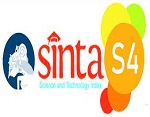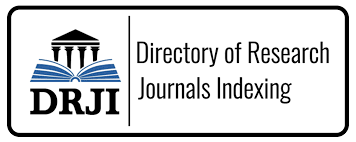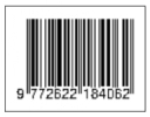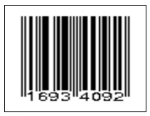Pengaruh Motivasi Kerja, Komitmen Organisasi dan Fasilitas Kerja Terhadap Kepuasan Kerja pada Badan Kepegawaian dan Pengembangan Sumber Daya Manusia Kota Palembang
DOI:
https://doi.org/10.31851/jmwe.v22i3.16671Abstract
ABSTRAK
Tujuan dari penelitian ini adalah untuk mengetahui bagaimana motivasi kerja, komitmen organisasi, dan fasilitas kerja mempengaruhi prestasi kerja pegawai SDM kota palembang. Motivasi kerja, komitmen organisasi, fasilitas kerja, dan prestasi kerja merupakan variabel yang diteliti. Sampel penelitian ini terdiri dari banyak responden. Pengambilan sampel Jenuh digunakan. Data primer mengacu pada jenis data yang digunakan dalam penelitian ini. Penyelidikan ini menggunakan metode koesioner. Jenis analisis yang digunakan adalah kuantitatif. Hasil analisis Berganda menunjukkan bahwa motivasi karyawan, komitmen organisasi, dan dukungan tempat kerja semuanya berpengaruh negatif terhadap kinerja karyawan. Berdasarkan hasil koefesien determinasi, kontribusi motivasi kerja, komite organisasi, dan fasilitas kerja sebesar 63,6% terhadap perubahan prestasi kerja. Berdasarkan hasil percobaan Hipotesis t terdapat perbedaan yang signifikan antara motivasi kerja, komposisi organisasi, dan fasilitas kerja terhadasp kepuasan kerja.
Kata Kunci: Motivasi Kerja, Komitmen Organisasi, Fasilitas Kerja dan Kepuasan Kerja.
ABSTRACT
The purpose of this research is to find out how work motivation, organizational commitment, and work facilities influence the work performance of Palembang City HR employees. Work motivation, organizational commitment, work facilities, and work performance are the variables studied. This research sample consisted of many respondents. Saturated sampling is used. Primary data refers to the type of data used in this research. This investigation uses a questionnaire method. The type of analysis used is quantitative. The results of the Multiple analysis show that employee motivation, organizational commitment, and workplace support all have a negative effect on employee performance. Based on the results of the coefficient of determination, the contribution of work motivation, organizational committees and work facilities is 63.6% to changes in work performance. Based on the results of the Hypothesis t experiment, there are significant differences between work motivation, organizational composition, and work facilities on job satisfaction
Keywords : Work Motivation, Organizational Commitment, Work Facilities and Job Satisfaction.
References
Afandi. (2018). Manajemen Sumber Daya Manusia Teori Konsep Dan Indikator. Pekan Baru: Zanafa Publishing.
Cohen. (2018). Komitmen Pada Perubahan Organissasi . Yogyakarta: CV Budi Utama.
Nuning, N. D. (2019). jurnal Ecopreneur, 12. pengaruh motivasi dan komitmen organisasi terhadap kepuasan kerja dan kinerja karyawan
Nuswantari, P. S. I. D. (2020). Pengaruh Motivasi, Komitmen Organisasi dan Fasilitas Mengajar Terhadap Kepuasan Kerja Guru di Sekolah Menengah Pertama (SMP) Negeri 1 Pangkalan Susu Kabupaten Langkat. Manajemen dan Bisnis, 2(2), 163-171.
Sedarmayanti, S. (2018). Peningkatan Kerja Pada Organisasi. Bandung: Zanafa Publishing.
Setiawan, H. D. (2020). Pengaruh komitmen organisasi terhadap kepuasan kerja pegawai di lingkungan kecamatan Bantargebang Kota Bekasi. Ilmu dan Budaya, 41(69).
Siregar. (2013). Statistic Parametric Untuk Penelitian Kuantitatif. Jakarta: PT Bumi Aksara.
Sugiyono. (2018). Mettode Penelitian Bisnis Pendekatan Kuantitatif, Kualitatif Kombinasi, Dan R&D. Bandung : Alfabeta.
Sugiyono. (2019). Metode Penelitian Kuantitatif, Kualitatif, Dan R&D . Bandung: Alfabeta.
Sujarweni. (2016). Kupas Tuntas Penelitian Akuntansi Dengan SPSS. Yogyakarta: Pustaka Baru Press.
Sujarweni. (2019). Metode Penelitian Bisnis Dan Ekonomi. Yogyakarta: PT. Pusaka Baru.
Wibowo. (2018). Manajemen Kinerja . Depok: Pt Rajagrafindo Persada.
Downloads
Published
Issue
Section
License
Copyright (c) 2025 Jurnal Media Wahana Ekonomika

This work is licensed under a Creative Commons Attribution-NonCommercial 4.0 International License.
The copyright of the received article shall be assigned to the publisher of the journal licensed under a Creative Commons Attribution-NonCommercial 4.0 International License in line with the license, authors and any users (readers and other researchers) are allowed to share and adapt the material only for non-commercial purposes. In addition, the material must be given appropriate credit, provided with a link to the license, and indicated if changes were made. If authors remix, transform or build upon the material, authors must distribute their contributions under the same license as the original.






















